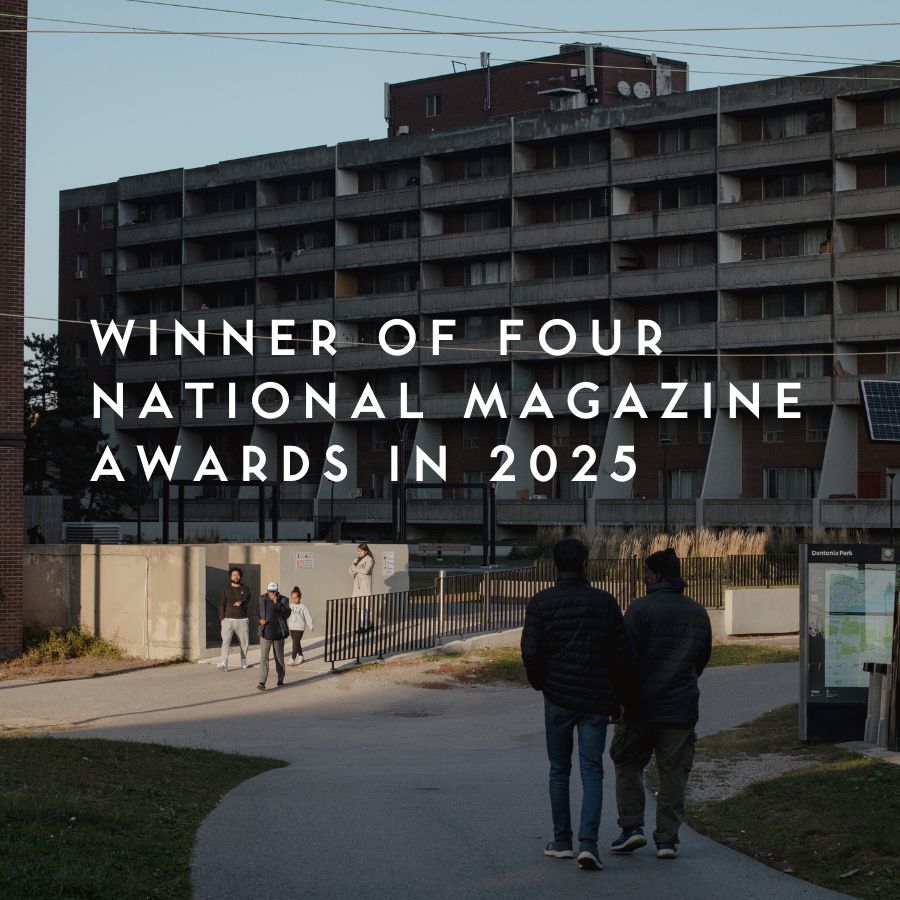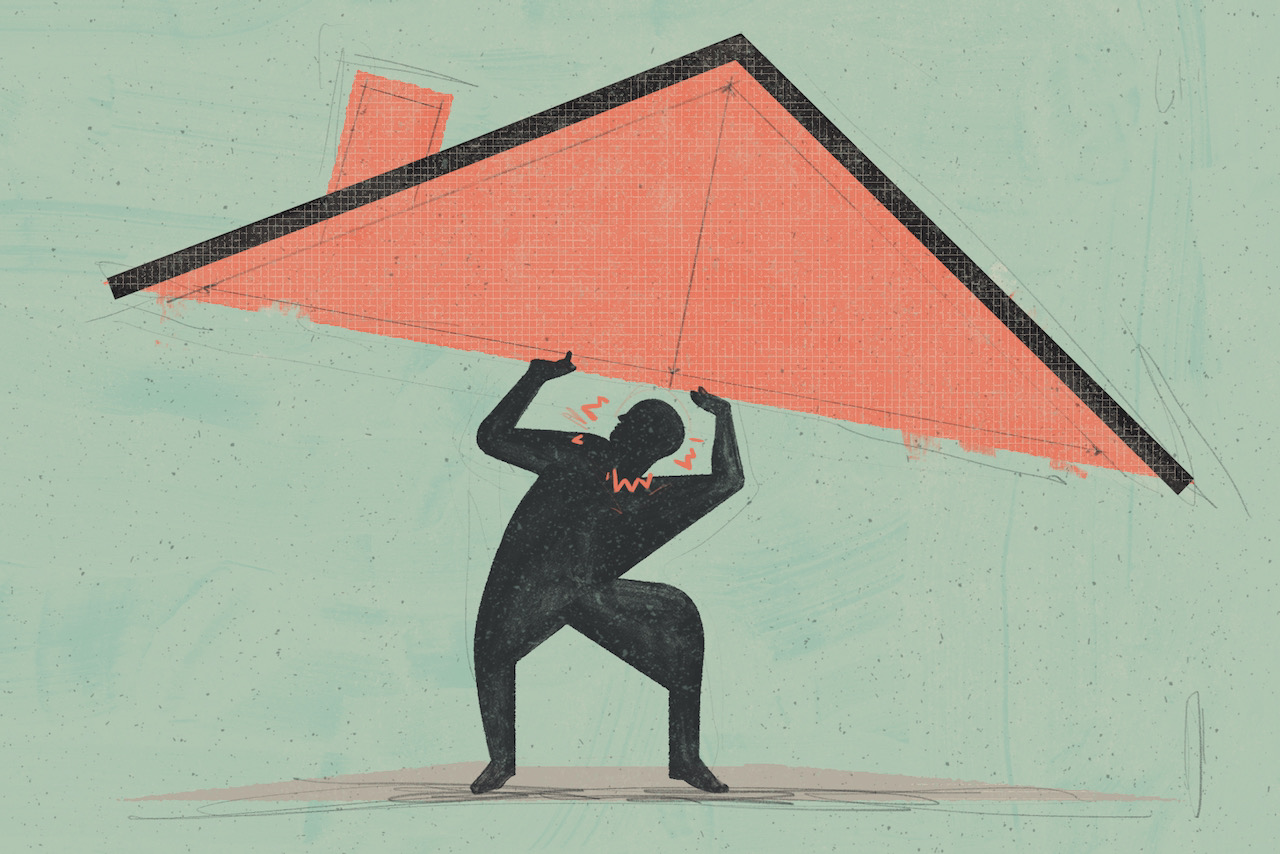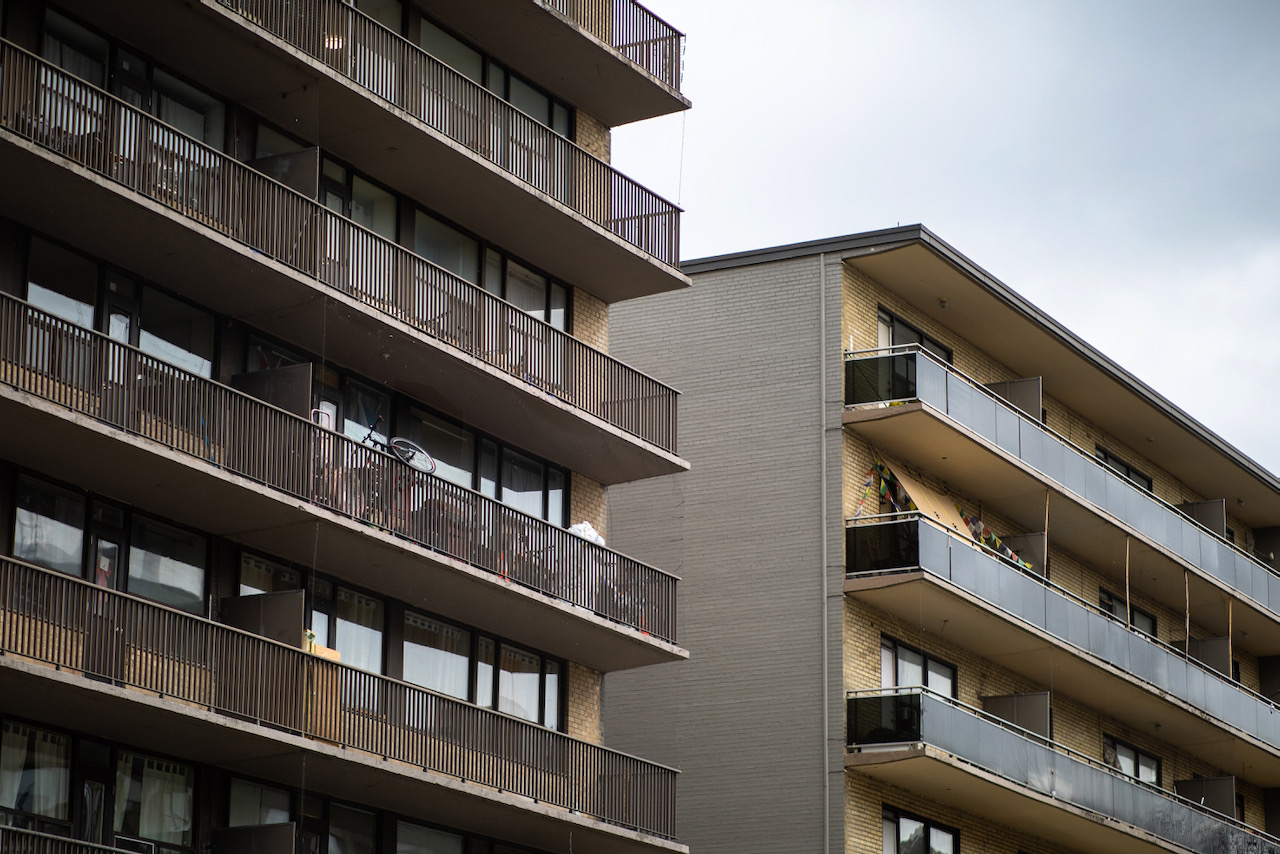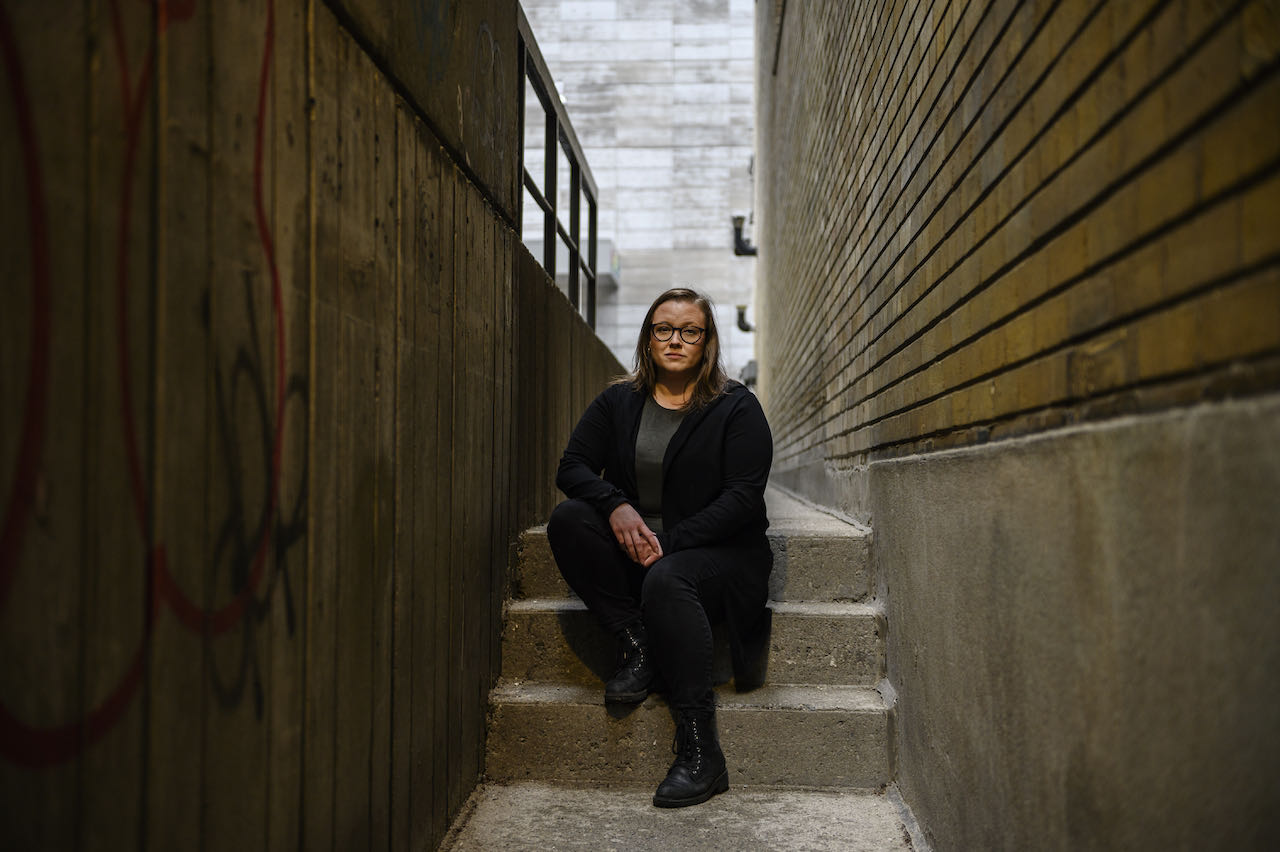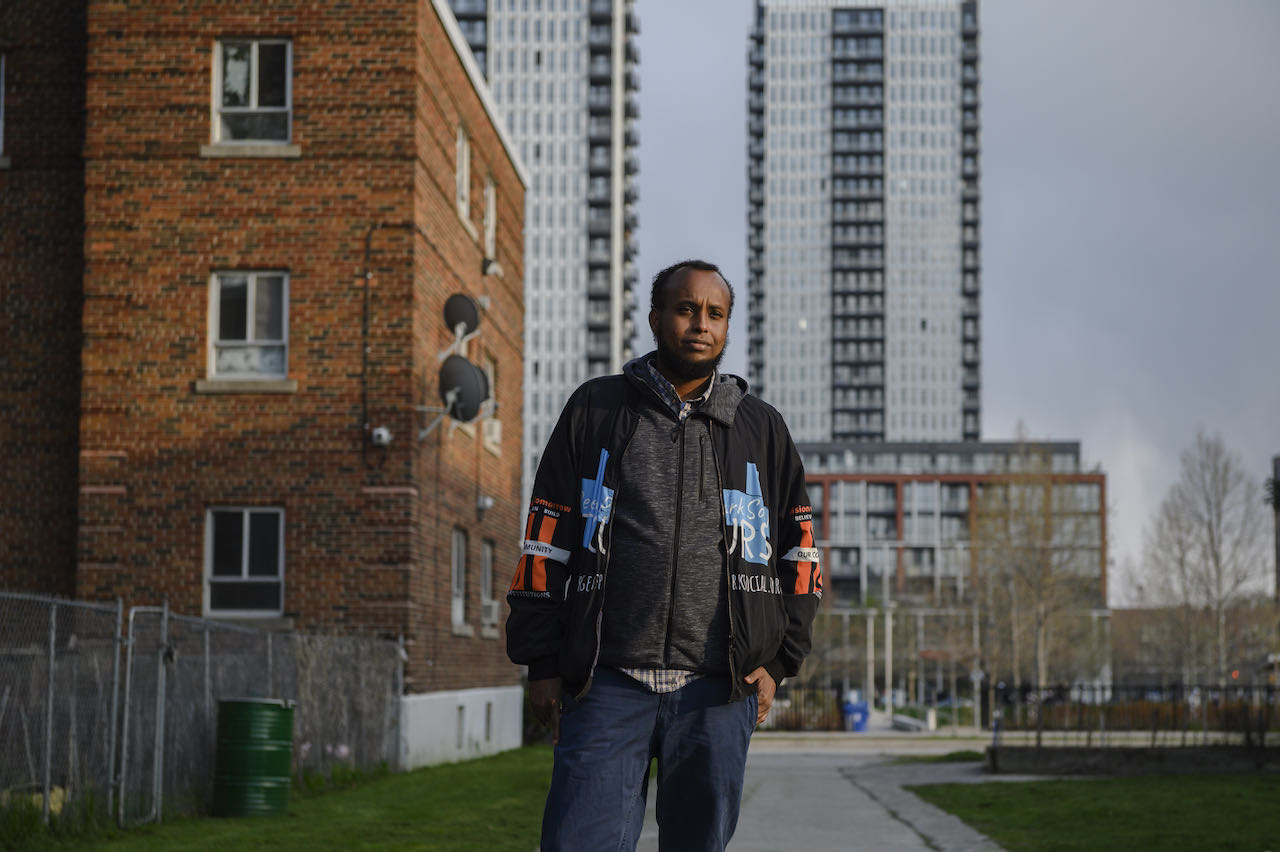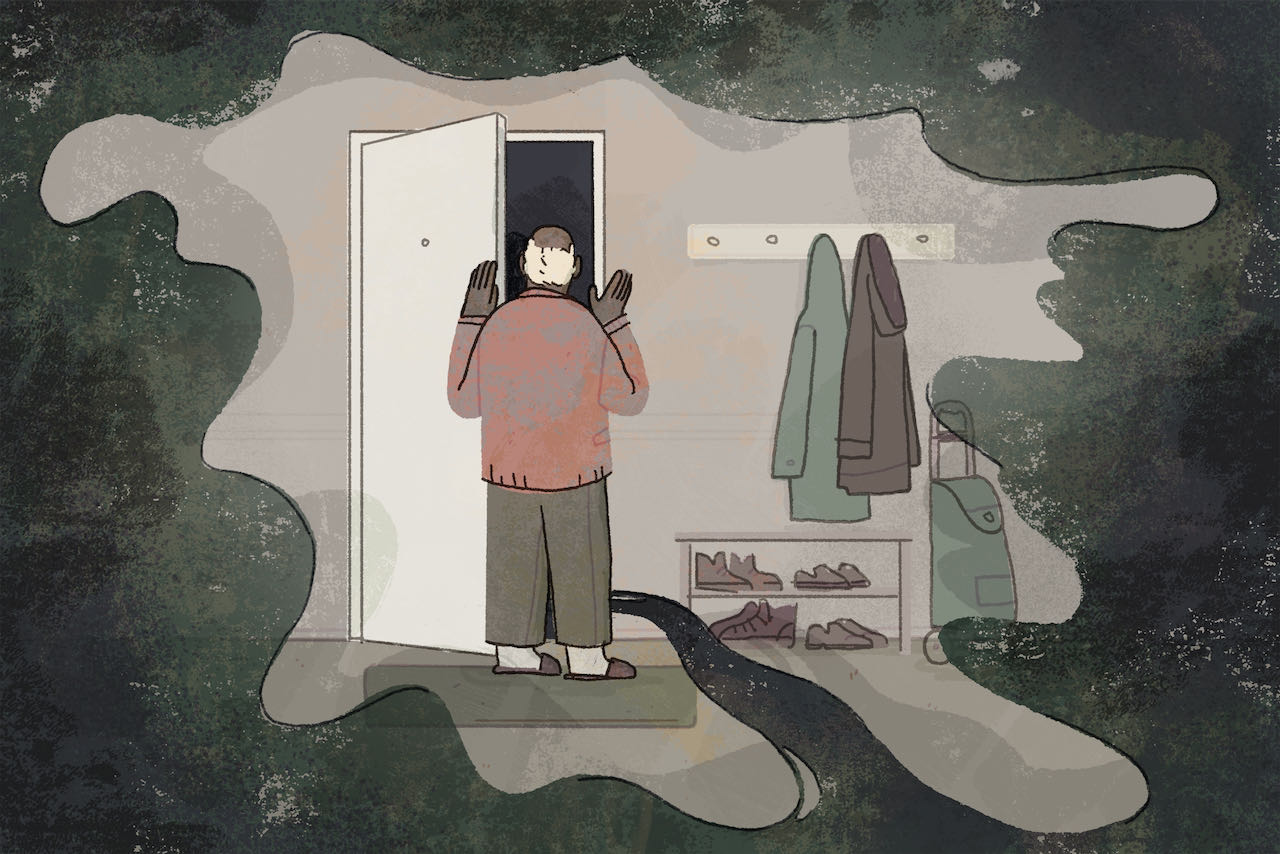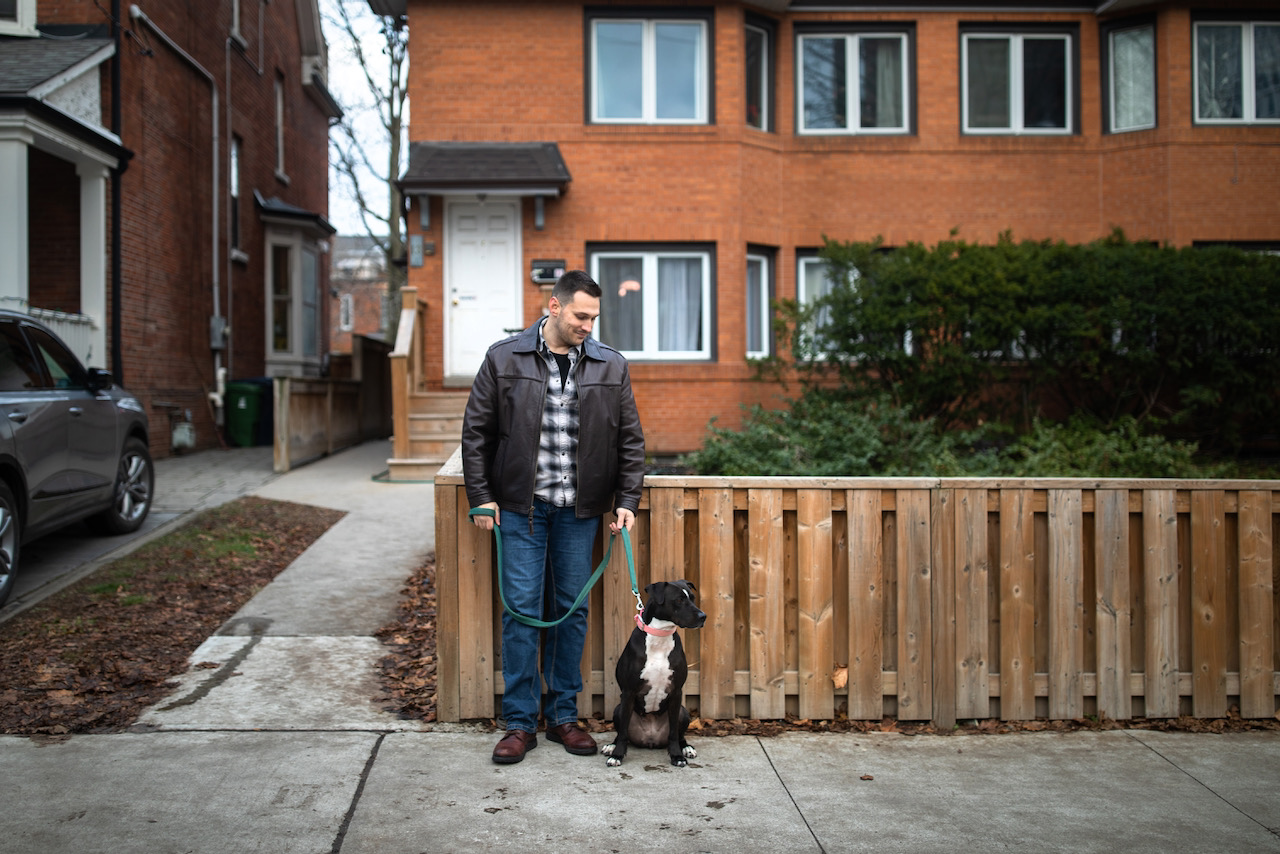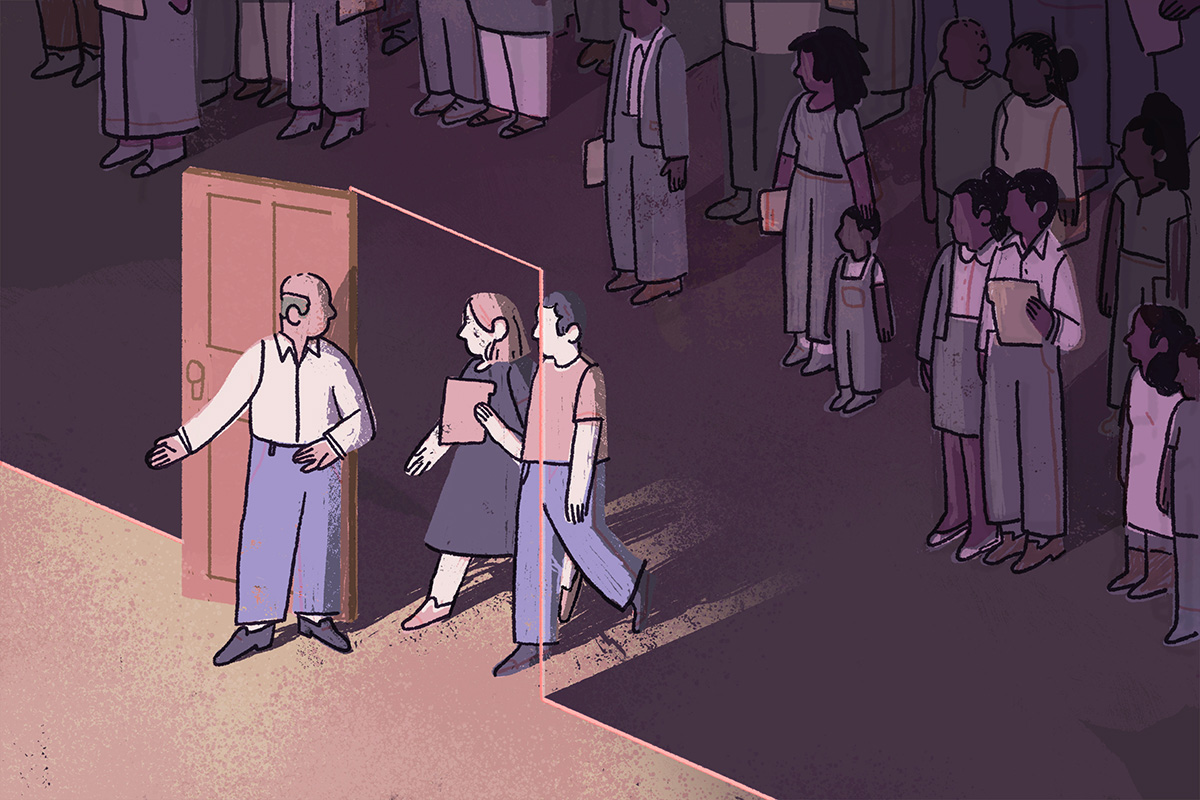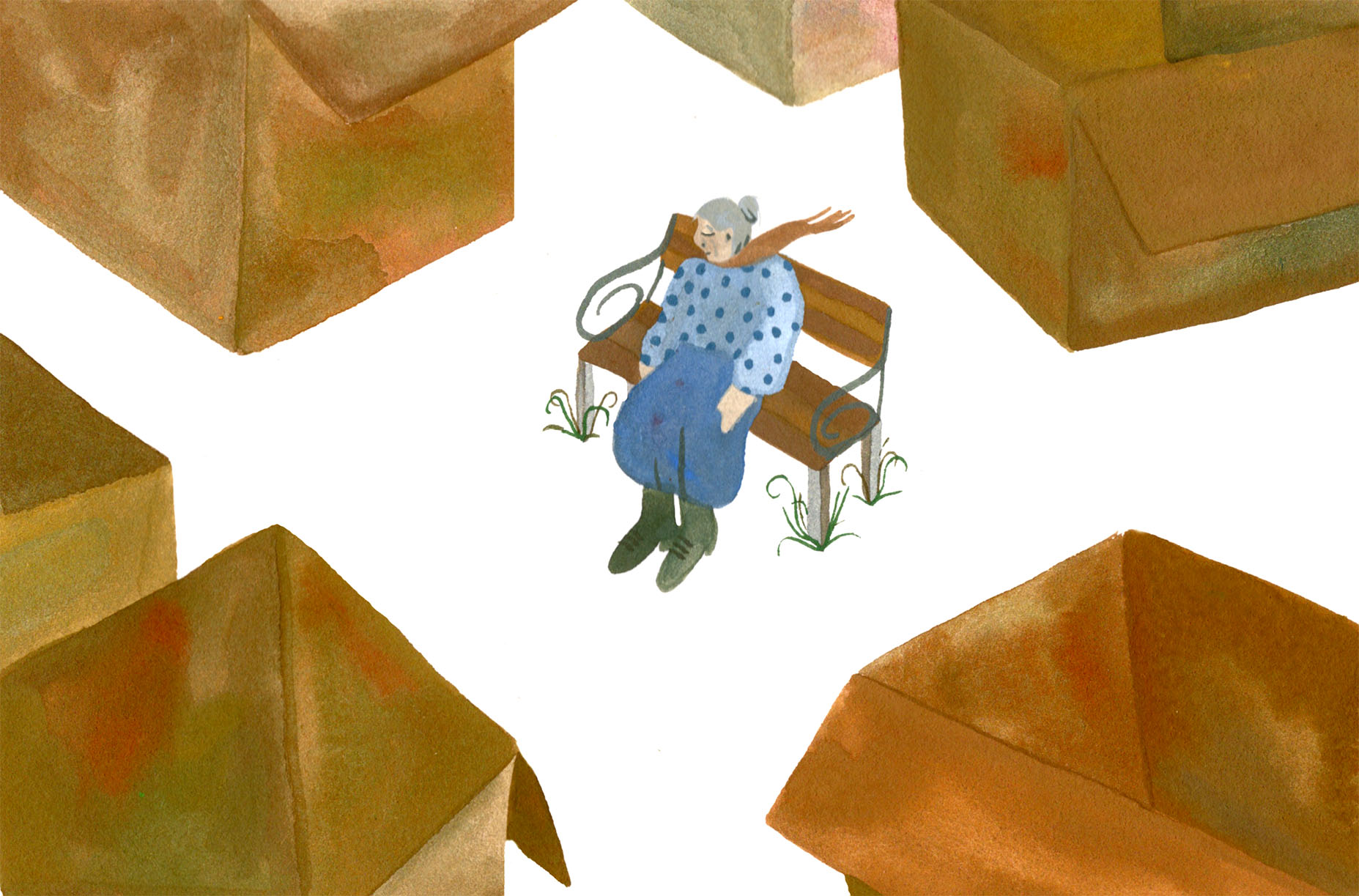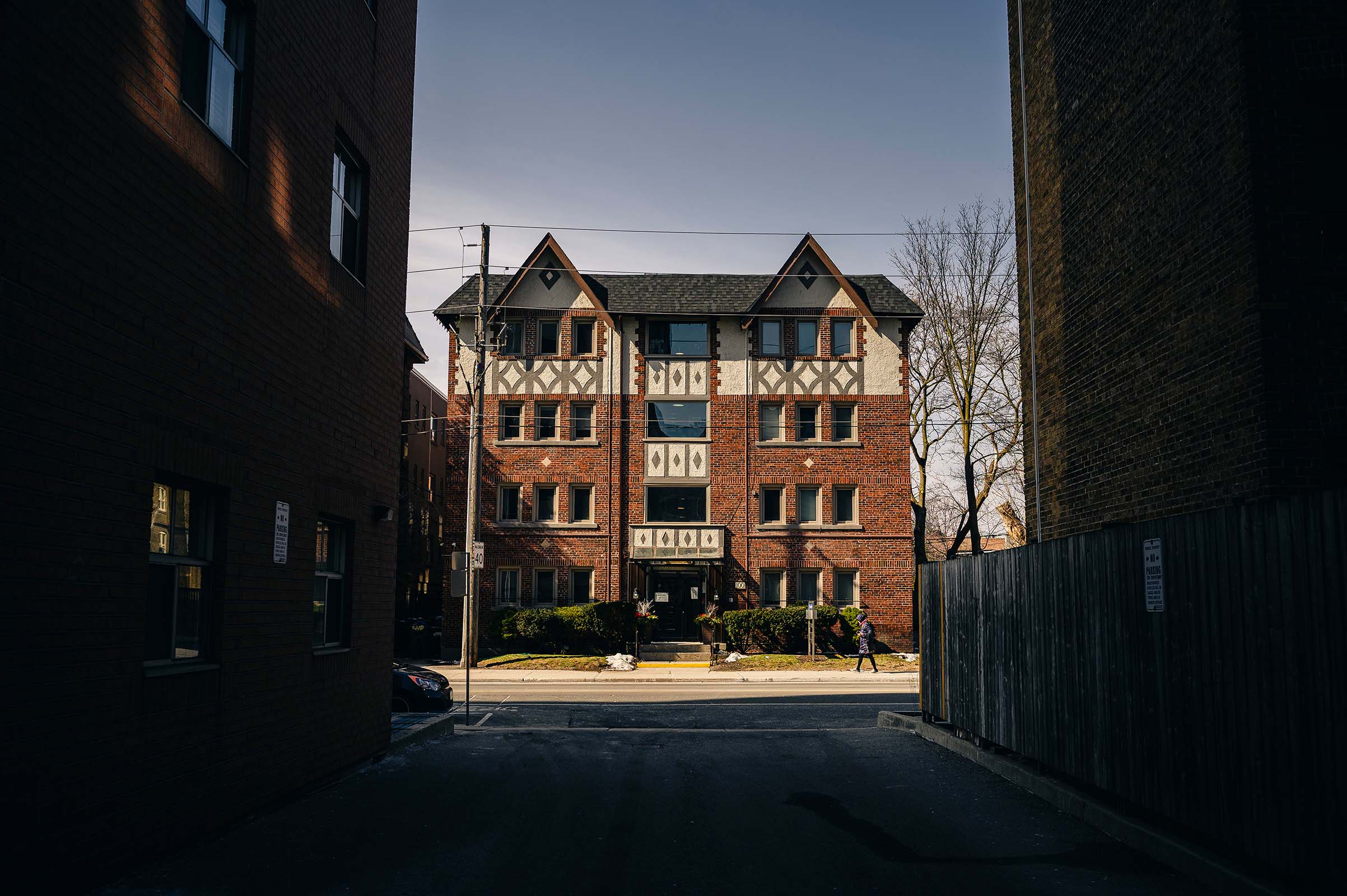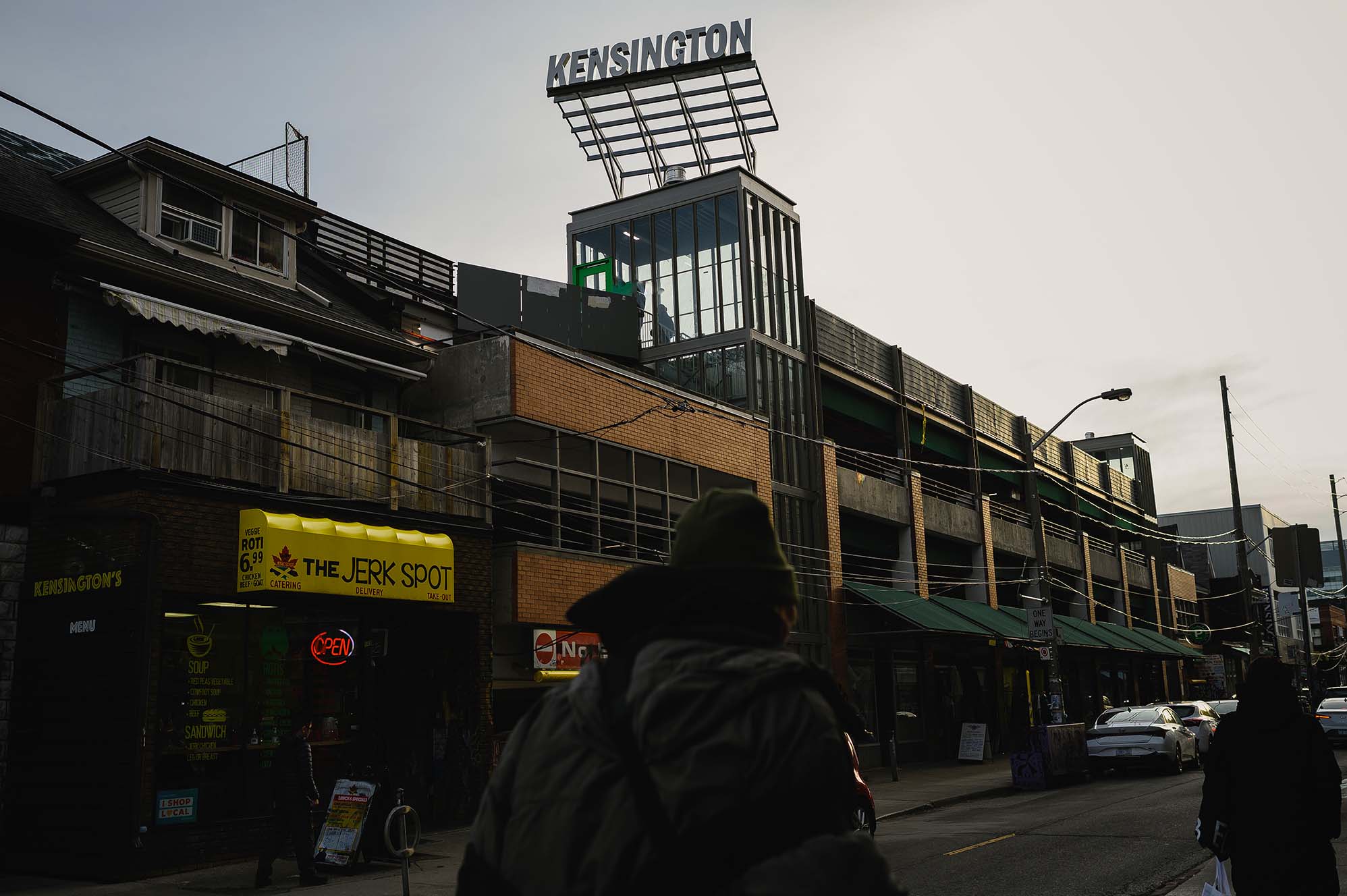
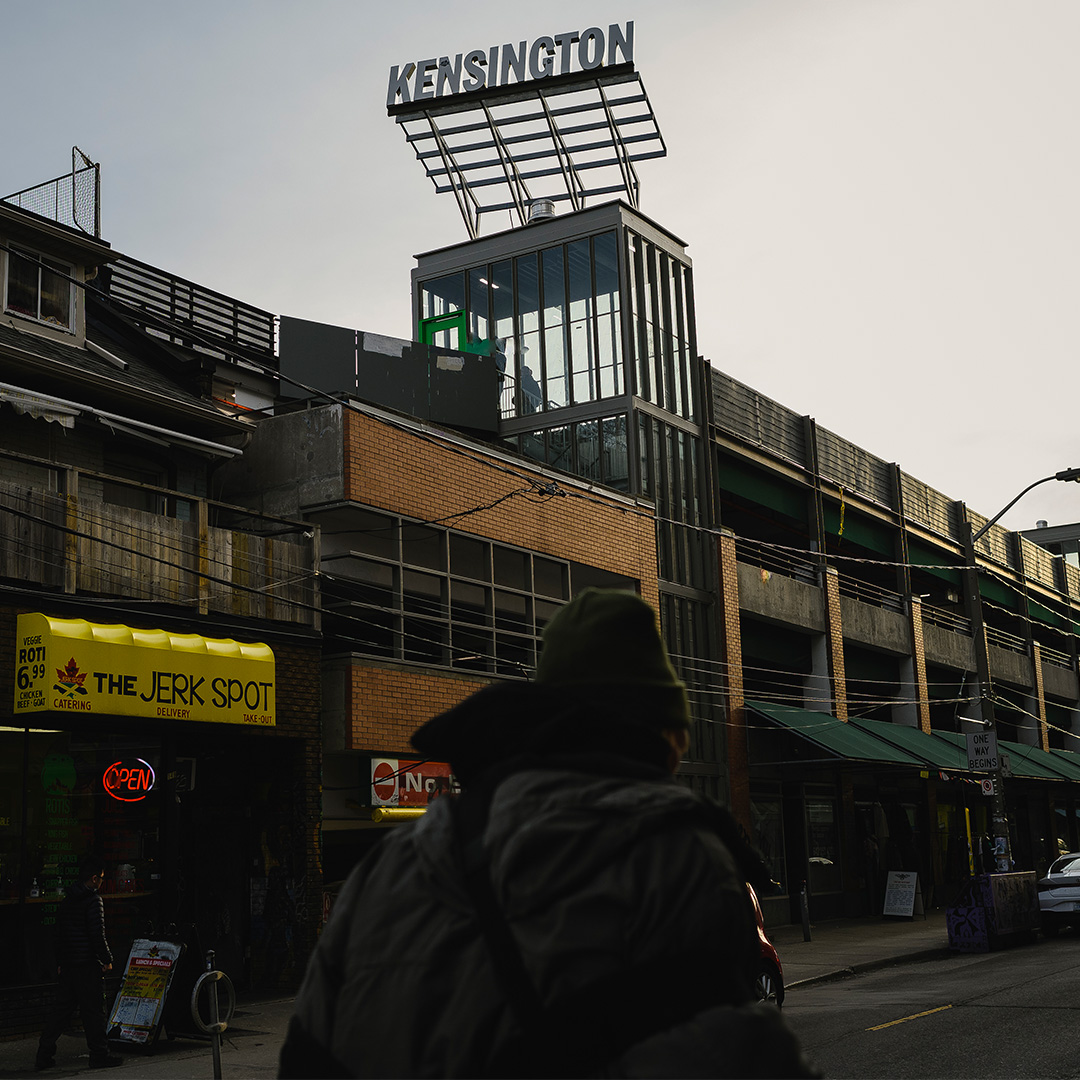
In the 1970s, while most of Toronto’s hippies were still firmly ensconced in Yorkville, Cece Scriver’s family opened a vintage store in Kensington Market. She and her siblings lived upstairs from Courage My Love, a funky space that kept Torontonians outfitted in the latest counterculture styles.
Scriver and her siblings spent most of their time playing with their neighbours in Bellevue Square Park. Their friends were predominantly children of Chinese and Vietnamese immigrants who worked and lived in the same neighbourhood. “Kensington was a place where you could do whatever you wanted as long as you didn’t poke your neighbour,” Scriver said.
Her family never left the market. Scriver and her brother bought homes nearby, and she raised her kids there. But the neighbourhood around them began to change. By the end of the 90s, Kensington was a cool area. There were more vintage stores, more boutiques, and more restaurants.
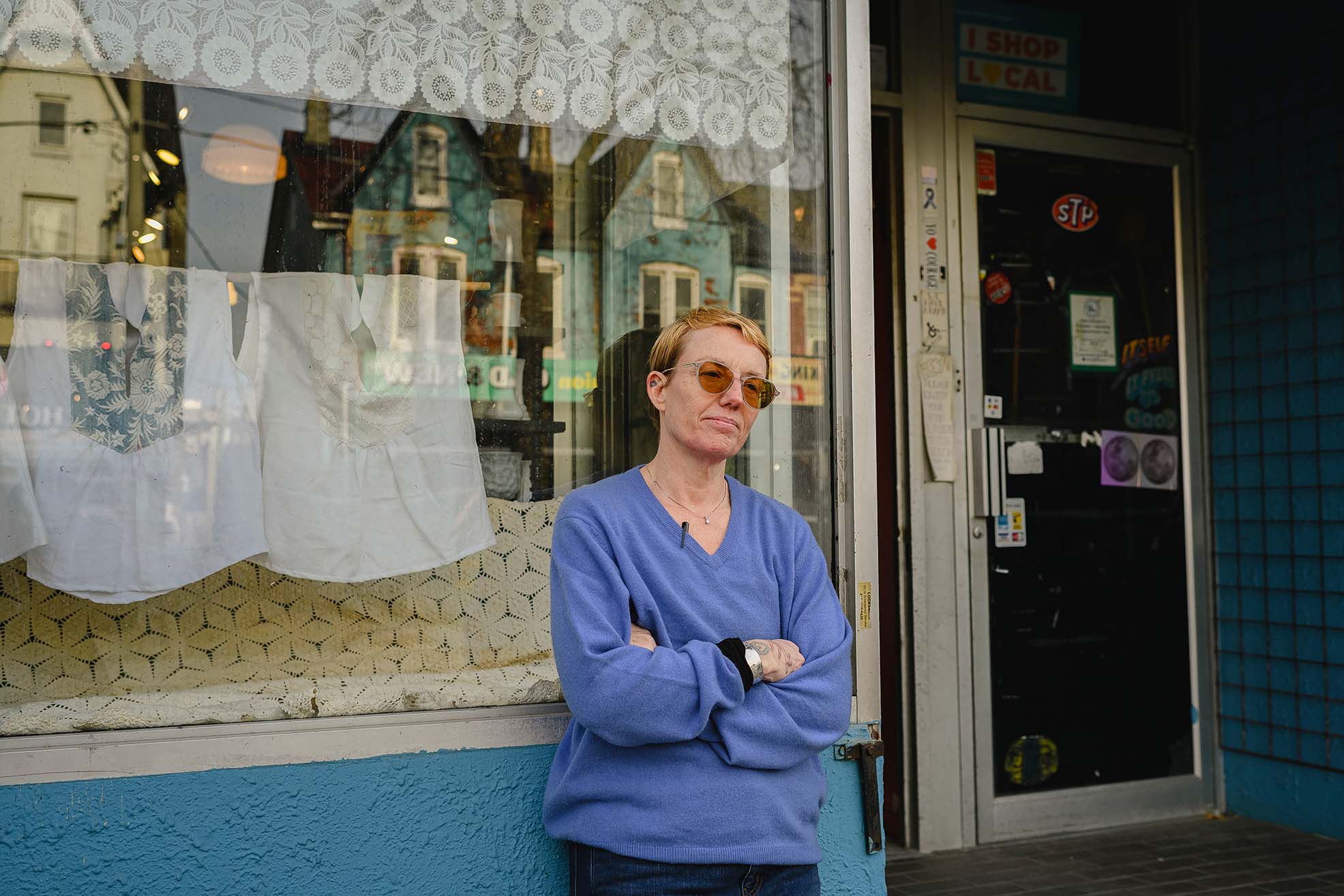
Here’s the thing: tourists want to stay in cool areas. And the launch of Airbnb in 2008—an online platform that allows people to rent their apartments or houses—made it possible for many of them to stay in Kensington Market. By 2017, there were over 130 listings in the community. Many were owned by the same operators, often renting out entire multi-unit homes that could have been long-term rental apartments. The rents for those that remained skyrocketed, leaving many former residents having to look elsewhere for homes.
But change was supposed to come. In 2021, the city of Toronto began enforcing new rules that limited how short-term rentals by companies like Airbnb operate. It was meant to free up long-term rentals in downtown communities like Kensington Market, where a majority of Airbnbs are found. But experts say that owners of short-term rentals have found a loophole that is still keeping apartments off the market.
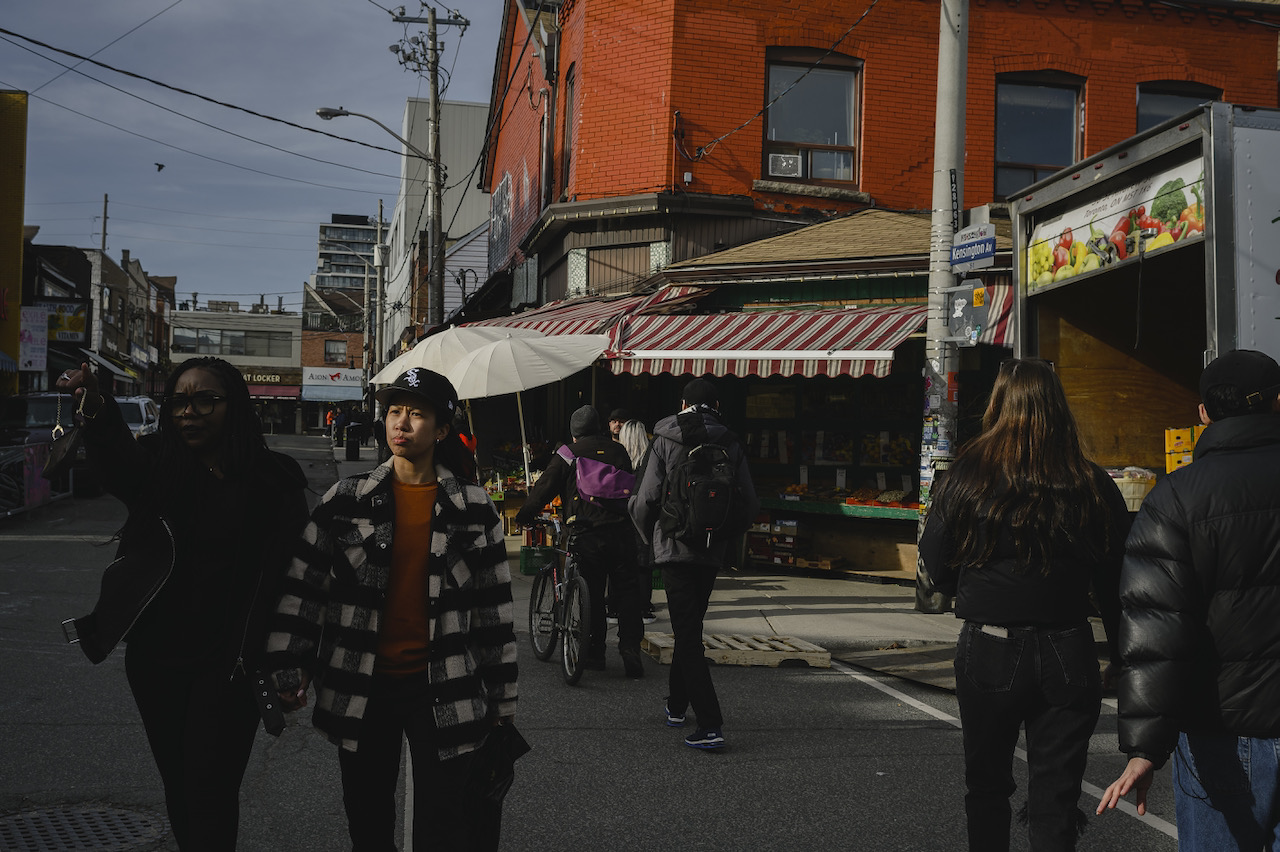
According to research done for the City of Toronto, before the pandemic over 8,000 housing units in Toronto were dedicated short-term rentals. In a city with more available housing stock, perhaps this wouldn’t have had as great an impact. But in a city where the vacancy rate fluctuated between 1.1 and 1.7 per cent from 2011 to 2019, it meant residents were suddenly competing with tourists for a limited number of places to call home.
Not every area of the city, however, feels the brunt of this in the same way. Downtown Toronto has the vast majority of short-term rentals in the city. Some of these are in older, established neighbourhoods like Kensington Market. But many others are also in the towers that have popped up in the core over the last 25 years. Some long-term renters and owners note they often see people coming and going from these buildings as if they are hotels, while others complain of all-weekend partying and disruptions from tourists in town to drink. How do you build new communities when so many of your neighbours are transient?
But just because most short-term rentals are downtown, doesn’t mean there isn’t an impact on renters throughout the rest of the GTA. “Small numbers can, at the margins, add up to big impact,” said David Wachsmuth, a McGill professor who studies the impact of short-term rentals globally. His research has found that in British Columbia—where Vancouver has the most active short-term rental listings per household in the country—short-term rentals are responsible for about an 18 percent overall jump in rent for the rest of the province. Even though the number of Airbnbs and other short-term rentals may be small compared to the overall housing stock, they create a domino effect: people who may have preferred to live downtown, for example, start looking to the further reaches of the city, even outside of Toronto, for more affordable rent. But while demand is up, supply isn’t—so suddenly rent prices climb.
Cities around the world have attempted a number of regulations to limit short-term rentals to address this issue. In Santa Monica, CA, you cannot rent a private home for less than 30 days. New York City has a similar law, as well as taxes on tourist stays. Amsterdam does not allow private homes and apartments to be rented on a short-term basis for more than 60 days in a year.
The rules put in place in Toronto limit stays to the resident’s entire home for only 180 days out of the year. Crucially, you can only rent your principal residence—a move aimed at stopping people from owning multiple Airbnbs. You have to register with the city. (A group of landlords appealed the rules but lost in 2019.) The rules apply to homes listed for 28 days or fewer on short-term rental sites.
However, critics say that the 28-day rule isn’t working. They believe short-term rental companies are still keeping housing off the market.

Serena Purdy lives in one of Kensington’s many alleyways. “It’s a microcommunity,” she says—people look out for each other. But as people moved away, the homes weren’t snapped up by new families, but by property management firms. Many of those turned the former rental homes or affordable property into short-term rental units.
Purdy is the chair of Friends of Kensington Market, a citizen advocacy group. They were extremely involved in the push for stricter rules around short-term rentals. “It’s not tourism we’re against,” says Purdy. “It’s being displaced in order for people to visit us.”
The pandemic made a dent in the number of short-term rentals: it’s estimated that in Toronto thousands of units returned to the long-term rental market in 2020. Stricter enforcement of the rules in 2021 also seemed to get results: in 2022, 187 registrations were revoked, 424 were denied, and 21 charges were submitted to court.
The hope is that once more homes did return to the market, many neighbours pushed out by high rents and low supply would be able to return.
But some say that didn’t exactly happen. “I’m surrounded by units that have replaced long-term tenants with short-term rentals,” says Purdy.
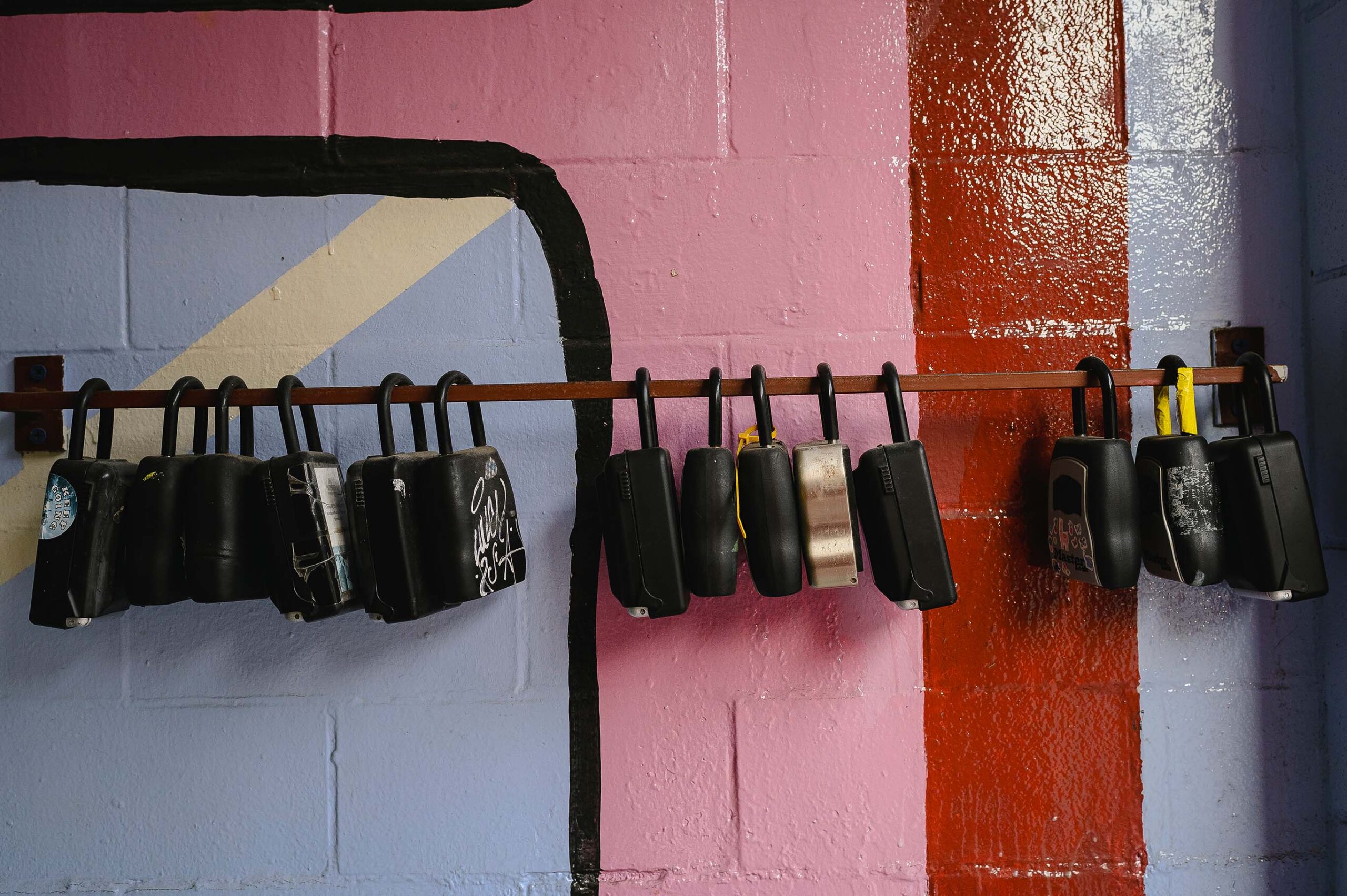
Thorben Wieditz is the director of Fairbnb Canada, a national coalition of organizations concerned with the growth of short-term rentals. When the new rules in Toronto came into effect, he expected, based on research done by Fairbnb, that thousands of units would be delisted on Airbnb and similar sites.
Instead, over 3,000 remained online but were now instead listed as 28 day or more rentals. “On their part (this) was a smart move because that allows them to keep these properties on the platform,” says Wieditz.
In February 2023 alone, there were more than 13,000 listings on Toronto Airbnb for 28-plus-day long listings, as opposed to less than 2,000 pre-pandemic. Wieditz says when they took a closer look at the data, they saw that some of these were getting multiple reviews a month—how would that be possible if they couldn’t be rented for any less than 28 days? He believes that some of these are still being used as short-term rentals, in violation of the city’s regulations.
It’s possible, Wieditz argues, that what is happening is that Airbnb becomes an advertising service, in effect—once the potential vacationer messages the owner, they let them know they can rent the unit for a shorter term privately. It’s under-the-table tourism. (Fairbnb only tracks Airbnb, since it’s the industry leader in short-term rentals, but it’s possible similar circumvention is taking place on Craigslist and other sites that rent vacation properties.)
Nathan Rotman, the policy lead for Airbnb Canada, denies that people are circumventing Toronto’s rules by listing properties for 28 days but renting them for shorter amounts of time. Airbnb requires that guests pay either the full-fee or half the fee upfront. If they were in fact renting it for a shorter amount of time, the owner of the property would have to reimburse them. “There’s no way any guest who is staying for a weekend is going to… subject themselves to that kind of potential scam,” said Rotman.
Carleton Grant, the executive director of municipal licensing and standards at the City of Toronto, says that while enforcement has been successful, it’s not perfect because they make the rules for the majority of people. “You don’t make rules for the 1 percent,” he said. (A staff report on the city’s regulations will be released by the end of 2023.)
If you are new to Toronto, looking for a place, what is to be done? The average price of a one-bedroom listing is more than $2,500. The vacancy rate is 1.7. So people might turn to short-term rentals while they try to find a place to live. It’s a circular situation: Airbnbs limit supply, and those who have demand end up having to rely on Airbnbs. Not only does it make a bad problem worse, but it puts those people at risk. They have no lease—just an agreement with Airbnb. While they are protected by the Residential Tenancies Act, many aren’t aware of that. And while Wieditz says that there will always be a need for what he would describe as a mid-length rental, it does not match the number of apartments currently listed on Airbnb.
It’s a situation some landlords have been able to take advantage of, kicking tenants out just by notifying them through Airbnb that they were ending the rental instead of giving proper notice. (Rotman says that this is a rare occurrence, and that Airbnb provides its users with information about ensuring they follow local laws and regulations.)
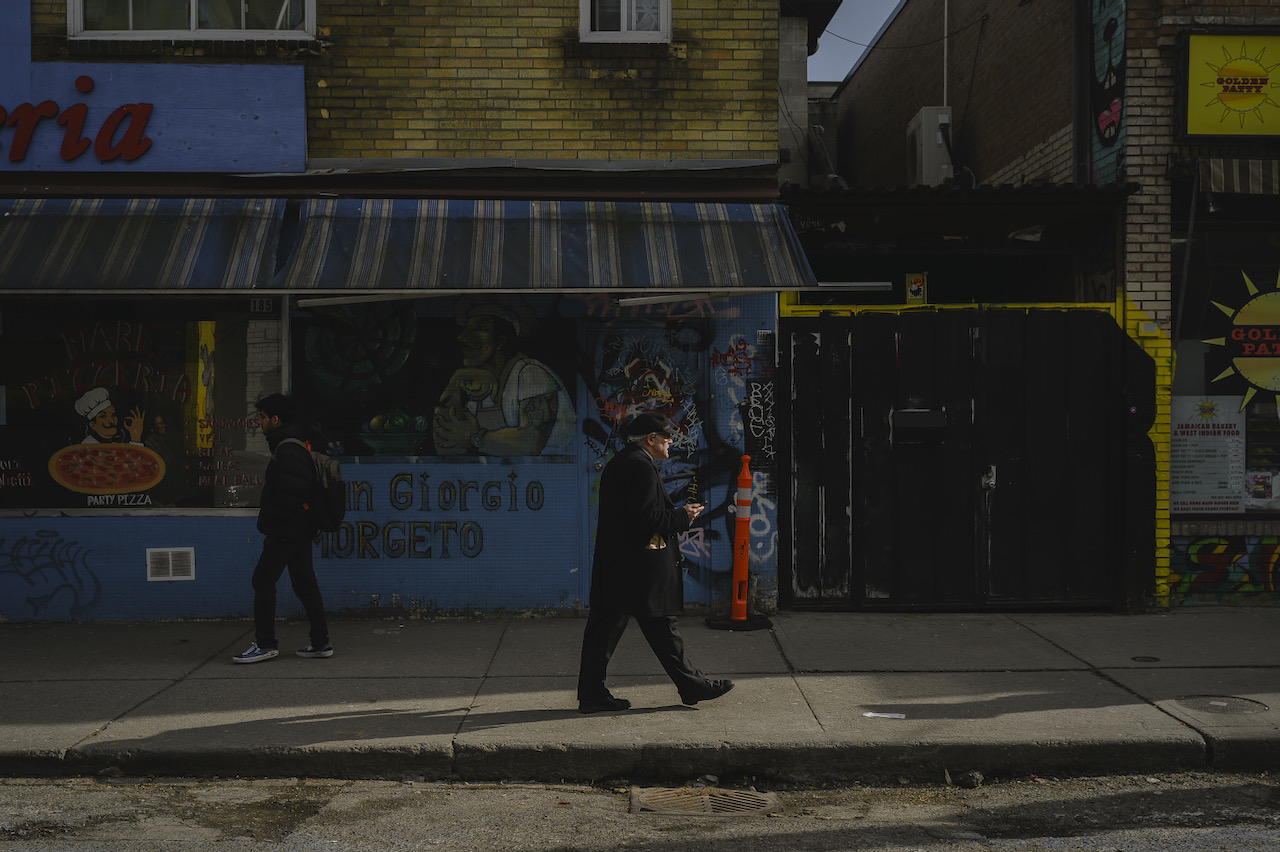
On January 31, NDP MPP Jessica Bell held a joint press conference with Fairbnb, calling on Premier Doug Ford to crack down on this loophole. “Toronto’s short-term rental market has contributed to a housing shortage and a rise in illegal evictions as investors have kicked out tenants to convert properties into pricey short-term rentals,” she said.
In Kensington Market, some residents have banded together to ensure long-term renters still have a home. In 2021, the Kensington Market Community Land Trust bought 54 and 56 Kensington Ave., a building where tenants were paying as little as $715 a month, after all the residents were threatened by renoviction. (The purchase was supported with $3 million from the city.) Dominique Russell, co-chair of the board, feared that the building would have become a ghost hotel. Instead, it’s going to be long-term housing, managed by the community.
“We’re looking at various ways that we can fund the purchase of future buildings,” Russell says. The Parkdale Neighbourhood Land Trust also owns a number of properties in the city’s west end, and efforts for similar ownership schemes are underway in Chinatown and Little Jamaica.
It’s one option to ensure renters have a home: but it’s a drop in the bucket compared to the need for housing in Toronto. According to advocates like Wieditz and Purdy, the only sure way to ensure more homes re-enter the rental market is to close the loophole.
“The best response to this would be to require that any property listed on Airbnb needs to be the principal residence, and that there needs to be proof that these are principal residences, in combination with data sharing agreements where Airbnb’s forced to share their operating data with municipalities so that they can see actually exactly what’s going on in the housing market,” says Wieditz. (Rotman says Airbnb does share data with the city of Toronto.)

Cece Scriver knew many of the families that lived in the homes that are now Airbnbs. They moved away when their children got older and became successful on their own terms.
But some, like her, remained and bought up property while it was cheap. “We’re all in our fifties and I don’t think any of us are leaving for another 30 or 40 years,” she says. Scriver hopes that stalwarts like herself, Purdy, and Russell will help maintain Kensington Market’s unique vibe.
“The market has made my family so successful,” she says. If her children don’t keep her homes, she says she’ll give back to the community: she’ll give the property to the Kensington Market Community Land Trust.
Our Rent Series is made possible through the generous support of Maytree. All stories were produced independently by The Local.
